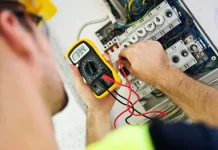Certifications play a pivotal role in ensuring the quality, reliability, and safety of fire doors. For fire door manufacturers, obtaining the necessary certifications is not just a matter of compliance; it is a mark of excellence and a commitment to fire safety. Here’s why certifications are of paramount importance for fire door manufacturers:
1. Compliance with Safety Standards
Certifications are an assurance that fire door manufacturers comply with local, national, and international safety standards and regulations. Fire doors are subject to strict codes and building requirements, and certifications demonstrate that the manufacturer’s products meet these standards.
2. Confidence in Fire Door Performance
Certifications provide confidence in the performance of fire doors during a fire emergency. Building owners, architects, and regulatory authorities can trust that certified fire doors will deliver the specified fire resistance and safety features when needed.
3. Independent Verification
Certifications are granted by independent, accredited testing organizations such as Underwriters Laboratories (UL), FM Global, Intertek, and others. These organizations conduct rigorous tests and evaluations to verify that fire doors meet the required fire resistance standards. The impartiality of these third-party certifying bodies adds credibility to the manufacturer’s claims.
4. Legal and Regulatory Compliance
Non-compliance with fire safety standards can have legal and financial consequences. Certifications serve as evidence that fire doors are compliant with the law, reducing the risk of liability for both the manufacturer and the building owner.
5. Customer Confidence
Certifications enhance customer confidence. Building owners, architects, and contractors are more likely to choose fire doors from manufacturers with reputable certifications, knowing that they are investing in quality and safety.
6. Market Access
Certifications often open doors to broader markets. Manufacturers with recognized certifications can access markets with stringent safety requirements, including industries where fire safety is critical, such as healthcare, education, and commercial construction.
7. Quality Assurance
Manufacturers that seek and maintain certifications are typically dedicated to maintaining high standards of quality control throughout their production processes. This results in consistently reliable and safe fire doors.
8. Credibility and Reputation
Certifications contribute to a manufacturer’s credibility and reputation within the industry. Manufacturers with a strong track record of producing certified fire doors are more likely to be trusted and recommended by industry professionals.
9. Continuous Improvement
Certifications often require manufacturers to demonstrate ongoing commitment to quality and safety. This can include periodic audits, retesting, and adherence to evolving standards. As a result, certified manufacturers are encouraged to continuously improve their products and processes.
10. Peace of Mind
For building owners and occupants, certified fire doors offer peace of mind. In the event of a fire, knowing that the fire doors have been independently tested and certified provides reassurance that the doors will perform as intended, potentially saving lives and property.
In conclusion, certifications are a fundamental component of fire door manufacturing. They serve to uphold safety standards, offer independent verification, and enhance customer confidence. Fire door manufacturers that pursue and maintain certifications demonstrate their commitment to producing high-quality, fire-resistant doors that can be trusted to perform under the most critical conditions. Certifications ultimately contribute to the safety and security of buildings and the people within them.










